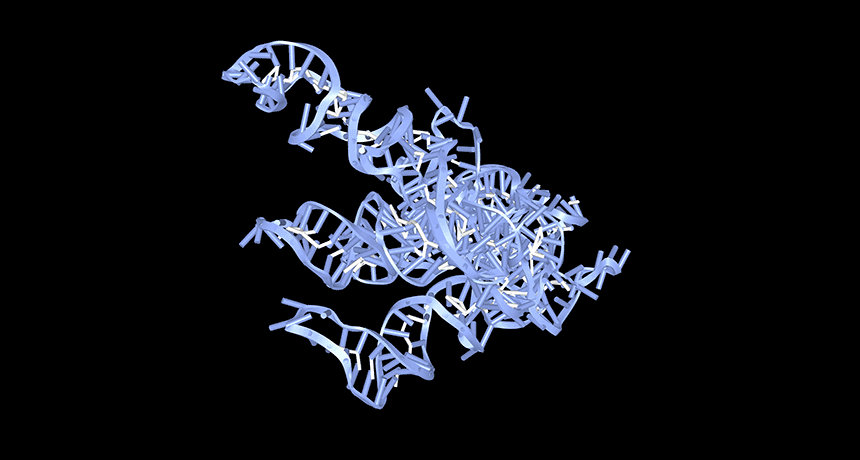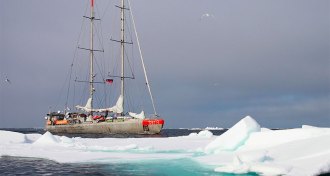News
-
 Anthropology
AnthropologyA jawbone shows Denisovans lived on the Tibetan Plateau long before humans
A Denisovan jaw is the earliest evidence of hominids on the Tibetan Plateau, and the first fossil outside of Siberia from the mysterious human lineage.
By Bruce Bower -
 Earth
EarthDry sand can bubble and swirl like a fluid
Put two types of sand grains together in a chamber, and they can flow like fluids under the right conditions.
-
 Astronomy
AstronomySkepticism grows over whether the first known exomoon exists
New analyses of the data used to find the first discovered exomoon are reaching conflicting results.
-
 Health & Medicine
Health & MedicineA mysterious dementia that mimics Alzheimer’s gets named LATE
An underappreciated form of dementia that causes memory trouble in older people gets a name: LATE.
-
 Health & Medicine
Health & MedicineHow holes in herd immunity led to a 25-year high in U.S. measles cases
U.S. measles cases have surged to 704. Outbreaks reveal pockets of vulnerability where too many unvaccinated people are helping the virus spread.
-
 Animals
AnimalsHow aphids sacrifice themselves to fix their homes with fatty goo
Young aphids swollen with fatty substances save their colony by self-sacrifice, using that goo to patch breaches in the wall of their tree home.
By Susan Milius -
 Health & Medicine
Health & MedicineWhy war’s emotional wounds run deeper for some kids and not others
Researchers examine why war’s emotional wounds run deep in some youngsters, not others.
By Bruce Bower -
 Animals
AnimalsEndangered green sea turtles may be making a comeback in the U.S. Pacific
The numbers of green sea turtles spotted around Hawaii, American Samoa and the Mariana Islands have increased in the last decade.
By Maanvi Singh -
 Genetics
GeneticsA lack of circular RNAs may trigger lupus
Researchers close in on how low levels of a kind of RNA may trigger lupus — offering hope for future treatments for the autoimmune disease.
-
 Microbes
MicrobesA global survey finds that the Arctic Ocean is a hot spot for viruses
Scientists mapped virus diversity around the world’s oceans. That knowledge may be key to making better climate simulations.
By Jeremy Rehm -
 Health & Medicine
Health & MedicineU.S. measles cases hit a record high since the disease was eliminated in 2000
Each year from 2010 to 2017, 21 million children did not get vaccinated against measles, according to UNICEF.
-
 Particle Physics
Particle PhysicsThis is the slowest radioactive decay ever spotted
Scientists have made the first direct observations of an exotic type of radioactive decay called two-neutrino double electron capture.